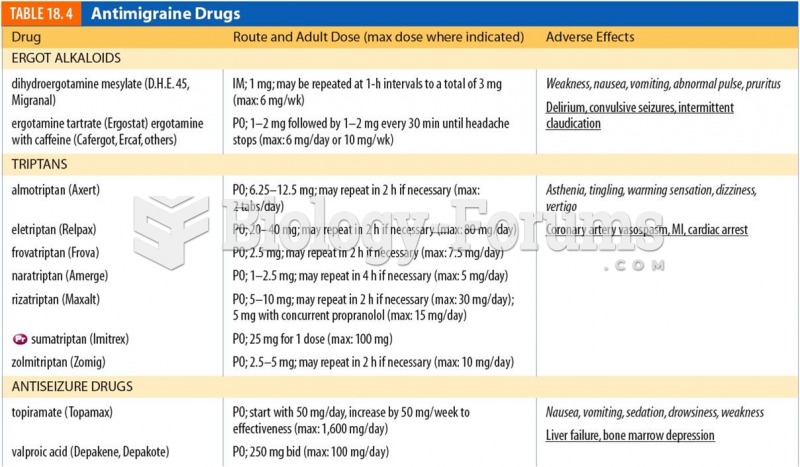Answer to Question 1
Correct Answer: 1,2,3
Rationale 1: Chlorpheniramine can cause urinary retention in older males with enlarged prostate.
Rationale 2: Pseudoephedrine can cause bronchospasm in a client with COPD.
Rationale 3: Acetaminophen should be used cautiously in clients with liver disease.
Rationale 4: This client should not have any difficulty with this combination drug.
Rationale 5: This combination would not pose a problem for this client.
Global Rationale: Consuming combination products without appropriate symptoms can increase the risk of unnecessary adverse effects. It is usually better to take only the drugs needed to treat specific symptoms rather than a combination product. Chlorpheniramine can cause urinary retention in older males with enlarged prostate. Pseudoephedrine can cause bronchospasm in a client with COPD. Acetaminophen should be used cautiously in clients with liver disease.
Answer to Question 2
Correct Answer: 1,2
Rationale 1: Prolonged use of intranasal decongestants causes hypersecretion of mucus and worsening nasal congestion once the drug effects wear off.
Rationale 2: Because of the possibility of rebound congestion, the client would not be able to use intranasal decongestant longer than 5 days, which might not be long enough to control symptoms.
Rationale 3: Oral decongestants take longer than intranasal decongestants to alleviate symptoms.
Rationale 4: Oral decongestants are less effective than intranasal decongestants at relieving severe congestion.
Rationale 5: Oral decongestants carry a greater risk for systemic adverse effects such as high blood pressure, insomnia, and anxiety.
Global Rationale: The most serious, limiting adverse effect of the intranasal preparations is rebound congestion. In almost all patients, prolonged use causes hypersecretion of mucus and worsening nasal congestion once the drug effects wear off. This leads to a cycle of increased drug use as the condition worsens to obtain the desired effect from these drugs. Because of this rebound congestion, intranasal sympathomimetics should be used for no longer than 3 to 5 days. When administered PO, sympathomimetics do not produce rebound congestion. Their onset of action by this route, however, is much slower than when administered intranasally, and they are less effective at relieving severe congestion. They carry a greater risk for systemic adverse effects.







